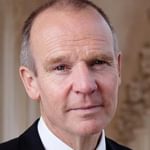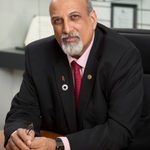Event Recording:
The benefits of prevention over cure are self-evident and yet we are reluctant to invest in staying healthy.
Resolution of this age-old dilemma begins with a timeless truth: the benefits of good health come at a cost; prevention is not better than cure at any price. That logic leads to the testable hypothesis that prevention should be favoured when an imminent, high-risk, high-impact hazard can be averted at relatively low cost.
Application of this idea helps to explain why cigarette smoking is still common place, why the world was not ready for the COVID-19 pandemic, why billions still do not have access to safe sanitation, and why the response to climate change has been so slow.
Join Professor Chris Dye, author of The Great Health Dilemma, and Professor Salim Abdool Karim, Director of the Centre for the AIDS Program of Research in South Africa (CAPRISA), as they discuss ways to invest more money and effort in health promotion and prevention around the world today.

Professor Christopher Dye
Professor of Epidemiology
Chris Dye began professional life as an ecologist in the UK, having been awarded degrees in biology (BA) from the University of York and zoology (DPhil) from the University of Oxford.
After developing an interest in infectious diseases at Imperial College London, he moved to the London School of Hygiene and Tropical Medicine to bring his research closer to public health. He was head of the School’s Vector Biology and Epidemiology Unit until 1996, carrying out research on leishmaniasis, malaria, rabies and other infectious and zoonotic diseases in Africa, Asia and South America.
In 1996, he joined the World Health Organization where he developed methods for using national surveillance and survey data to study the large-scale dynamics and control of tuberculosis (TB) and malaria, and Ebola and Zika viruses. As WHO’s Director of Strategy between 2014 and 2018, he worked with governments and other agencies to strengthen WHO's scientific work and to translate science into health policy.
From 2006 to 2009, he was also Professor of Physic at Gresham College, 35th in a lineage of professors that have been giving public lectures in the City of London since 1597.
During the Covid-19 pandemic, Chris led the work of a UK-wide group of scientists to set out the evidence and the facts on COVID-19 through “Coronavirus: The Science Explained”, a website hosted by UK Research and Innovation, the UK's funding agency for science and research. He is also a member of the Royal Society SET-C steering committee that provides rapid science advice on the pandemic to government (https://royalsociety.org/topics-policy/projects/set-c-science-in-emergencies-tasking-covid/).
He is a Fellow of the UK Academy of Medical Sciences and of the Royal Society

Professor Salim S. Abdool Karim
Director, Centre for the AIDS Program of Research in South Africa (CAPRISA)
Salim S. Abdool Karim is a clinical infectious diseases epidemiologist who is widely recognised for his research contributions in HIV prevention and treatment. He is CAPRISA Professor for Global Health in the Department of Epidemiology at the Mailman School of Public Health at Columbia University. He is also Director of the Centre for the AIDS Program of Research in South Africa (CAPRISA), Pro Vice-Chancellor (Research) at the University of KwaZulu-Natal in Durban, South Africa and Adjunct Professor of Medicine at Weill Medical College of Cornell University.
His contributions to microbicides for HIV prevention spans two decades and culminated in the CAPRISA 004 tenofovir gel trial which provided proof-of-concept that antiretroviral drugs can prevent sexually transmitted HIV infection and herpes simplex virus type 2 in women. He is co-inventor on patents which have been used in several HIV vaccine candidates and his clinical research on TB-HIV treatment has shaped international guidelines on the clinical management of co-infected patients.
He is Chair of the UNAIDS Scientific Expert Panel, Chair of the WHO's HIV and Hepatitis Scientific and Technical Advisory Group and a member of the WHO HIV-TB Task Force. He is an elected Fellow of the World Academy of Sciences, the African Academy of Sciences, the Academy of Science in South Africa, the Royal Society of South Africa and the American Academy of Microbiology. He is a Foreign Associate Member of the US National Academy of Medicine.
He serves on the Boards of the New England Journal of Medicine, Lancet-Global Health, Lancet-HIV and the Journal of AIDS.
Keep in touch
If you found this page useful, sign up to our monthly digest of the latest news and events
Subscribe